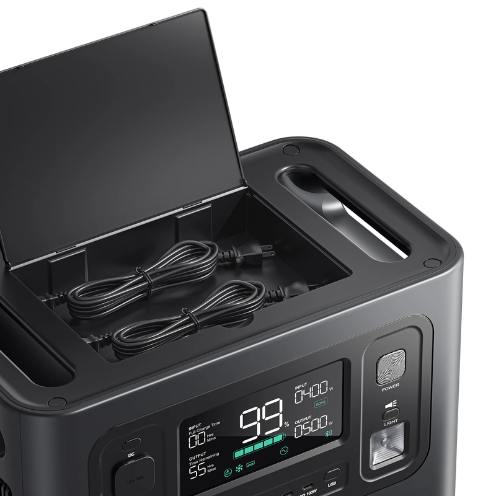
As energy demands continue to rise and environmental concerns become more pressing, consumers are searching for alternatives that combine reliability with sustainability. Among the most popular innovations reshaping the energy landscape are solar generators. These devices harness the limitless power of the sun, converting it into usable electricity for homes, outdoor activities, emergency preparedness, and even small businesses. Unlike traditional gas-driven systems, solar-powered units operate silently, require minimal maintenance, and eliminate harmful emissions, making them a preferred choice for eco-conscious households and travelers alike.

Understanding the Concept of Solar Generators
At their core, solar generators function as compact renewable power stations. They typically consist of three main components: solar panels that capture sunlight, a battery bank that stores the energy, and an inverter that converts stored power into usable alternating current (AC). Some models also include charge controllers to regulate the flow of electricity and protect the system from overcharging.
Unlike fuel-based machines that rely on combustion, solar-driven units are clean and sustainable. They can be charged through direct sunlight or, in some cases, from wall outlets and car chargers, offering flexibility for different environments. This adaptability makes them an attractive option for both urban and remote users.
Why Solar Generators Are Gaining Popularity
The rise of renewable energy solutions has accelerated interest in portable solar stations. Families are increasingly using them as home backup systems to keep essentials like refrigerators, medical devices, and communication tools running during outages. Outdoor enthusiasts appreciate their ability to provide electricity for camping gear, cooking appliances, and navigation tools without the noise and fumes of gas-powered alternatives.
Another major reason for their popularity is cost savings. Although the initial purchase can be higher compared to conventional portable generators, solar units have almost no ongoing fuel expenses. Sunlight is free, and the latest lithium-based batteries are designed to last for thousands of charging cycles, making them a long-term investment.
Comparing Solar Generators with Traditional Fuel Units
One of the biggest advantages of solar-driven systems is their quiet operation. Gasoline and propane machines, while powerful, produce constant noise that can be disruptive in residential areas or campsites. In contrast, solar-based solutions operate silently, making them ideal for both indoor and outdoor use.
Environmental impact is another critical difference. Fuel generators release carbon dioxide and require constant refueling, while solar systems generate clean electricity with zero emissions. This distinction has positioned solar power as an essential tool for those seeking to lower their carbon footprint.
That said, solar energy does have its limitations. Charging depends heavily on sunlight, which can be inconsistent in certain regions or weather conditions. For this reason, many users pair solar generators with additional panels or keep them as complementary tools alongside traditional backup systems.
Everyday Applications of Solar Power Stations
The versatility of solar generators makes them suitable for a wide range of applications. During power interruptions, they ensure that lights, routers, and kitchen appliances remain functional, preventing disruption to daily life. For individuals working remotely, these systems keep laptops, mobile devices, and small office equipment powered even during outages.
Outdoor enthusiasts also rely on them for convenience and safety. Whether it’s running a portable fridge during a road trip, charging cameras in the wilderness, or powering fans and heaters in a tent, solar energy ensures comfort without dependency on fuel stations.
In humanitarian settings, solar systems play a crucial role in disaster relief. When natural disasters strike and grid power becomes unavailable, these generators provide essential electricity for communication, water filtration, and medical equipment, often serving as lifelines in critical situations.
How to Select the Right Solar Generator
Choosing the right system depends on evaluating energy needs and lifestyle requirements. Those seeking occasional backup for small electronics might prefer compact models with lower capacity, while households preparing for frequent outages may benefit from larger systems capable of powering multiple appliances simultaneously.
Battery technology is another consideration. Lithium-ion and lithium iron phosphate (LiFePO4) batteries dominate the market for their efficiency, safety, and extended lifespan. Inverter type also matters, as pure sine wave inverters provide smoother electricity suitable for sensitive devices such as computers and medical machines.
Portability, charging speed, and expandability with additional solar panels are also critical factors that determine the overall usefulness of a generator. By carefully weighing these aspects, consumers can find a system that balances affordability, reliability, and long-term performance.
The Future of Solar Generators
With advances in energy storage and photovoltaic technology, the future of solar-powered generators looks promising. Lighter, more compact designs are making them easier to carry, while smart features allow users to monitor performance through mobile apps. The integration of fast-charging batteries and higher-efficiency solar panels means that upcoming models will deliver even more reliable electricity with shorter recharge times.
As governments and organizations push for renewable adoption, the popularity of solar generators is expected to expand globally. They represent not only a practical solution for everyday power needs but also a symbol of the broader shift toward sustainable living.
Conclusion
In an age where dependable electricity is essential and sustainability is a priority, solar generators offer an innovative bridge between convenience and environmental responsibility. Their ability to provide clean, quiet, and portable energy makes them valuable for households, travelers, and humanitarian efforts alike. While they may not entirely replace traditional systems, their role as versatile and eco-friendly alternatives is undeniable. With continuous advancements in battery storage and solar panel efficiency, these devices are poised to become even more integral to modern energy solutions. Investing in a solar generator is more than just purchasing a power source—it is a step toward independence, resilience, and a greener future.















